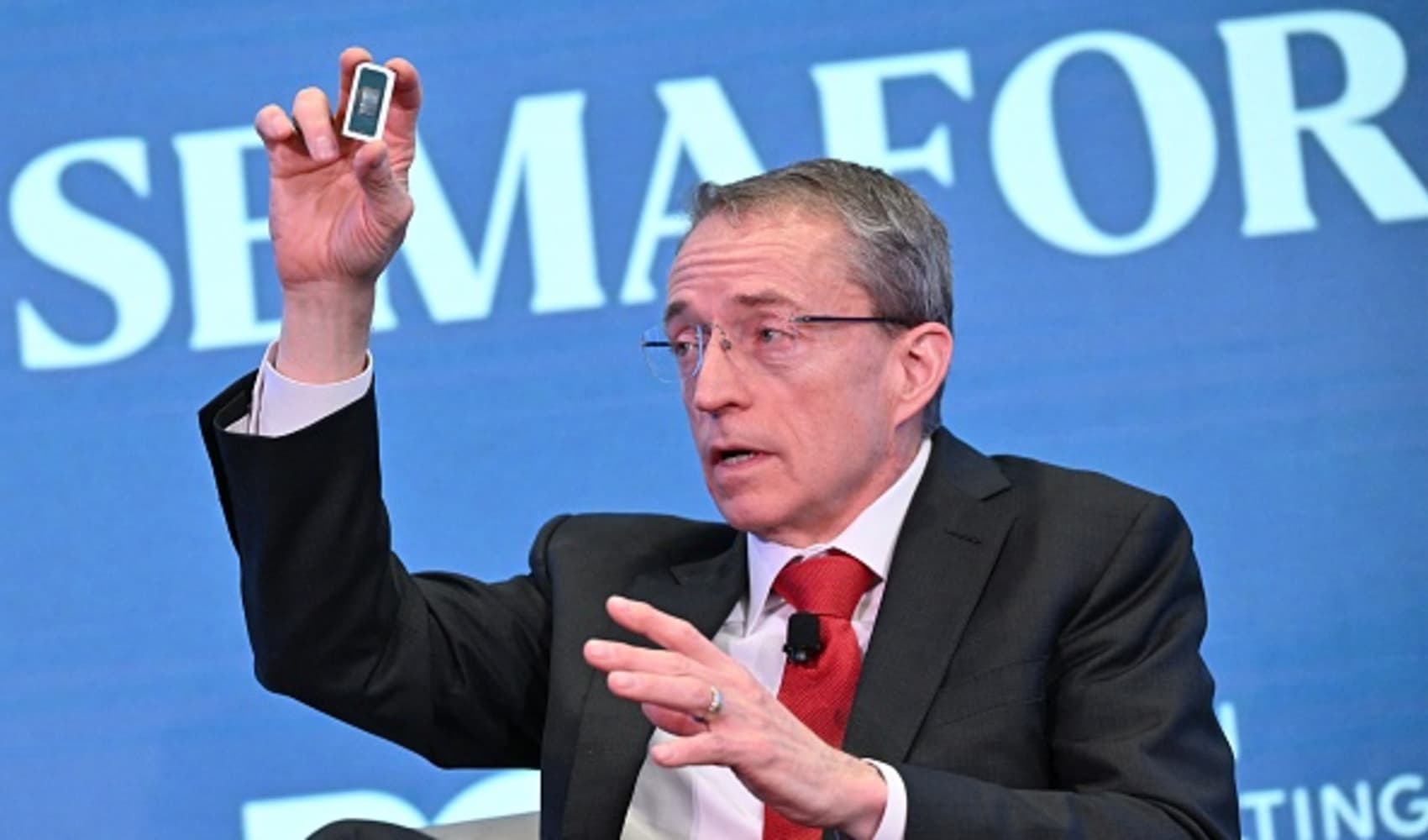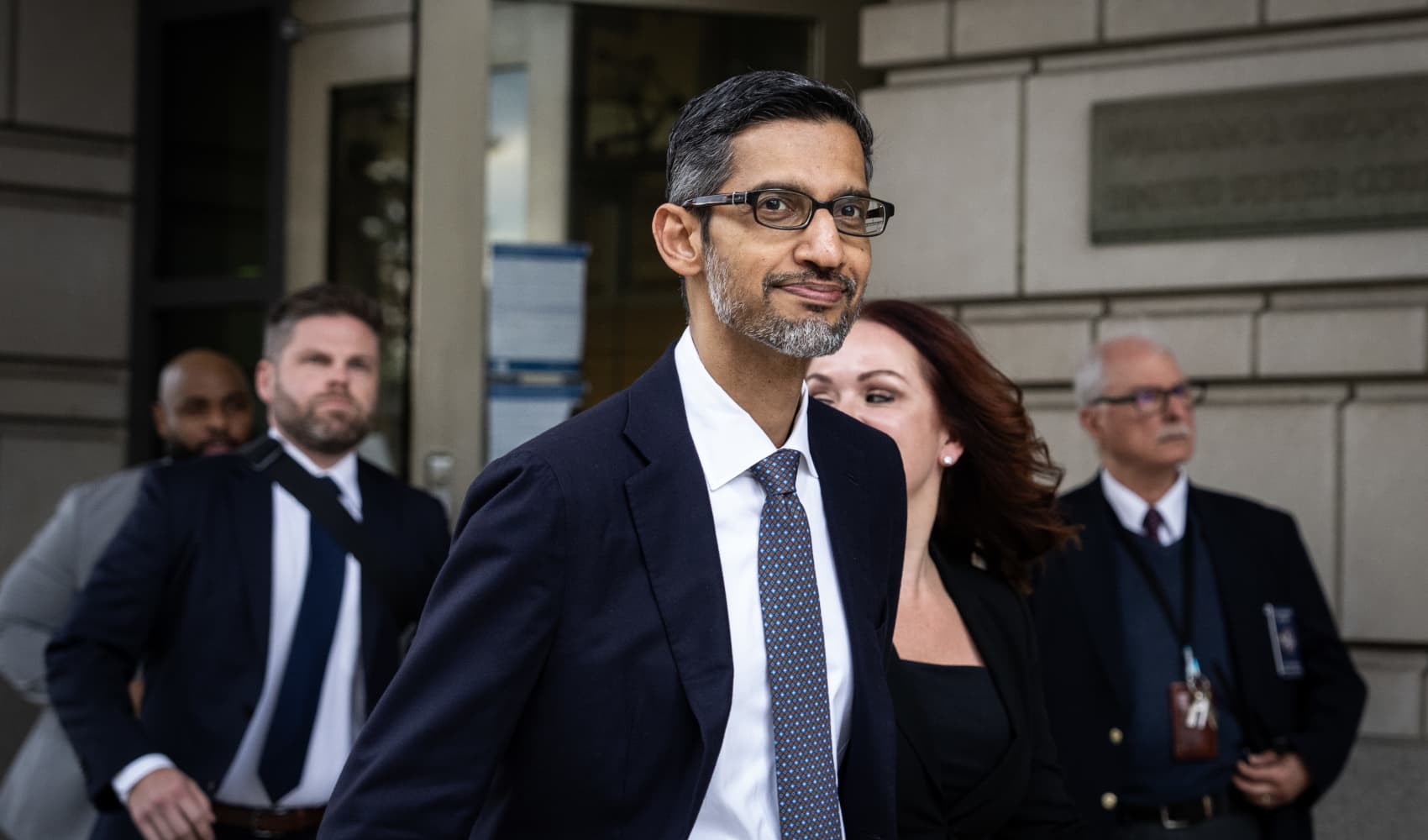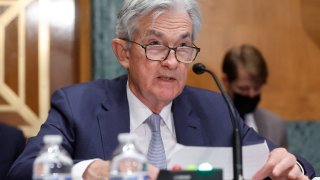
Forecasters have raised their outlooks for a recession and boosted their inflation projection as the Federal Reserve faces the quandary of fast-rising prices and greater uncertainty from Russia's invasion of Ukraine, according to the latest CNBC Fed Survey.
The probability of a recession in the U.S. was raised to 33% in the next 12 months, up 10 percentage points from the Feb. 1 survey. The chance of a recession in Europe stands at 50%.
Respondents debated whether the recent surge in commodity prices would prompt the Fed to hike rates faster because it adds to inflation or raise rates less because they reduce growth.
We're making it easier for you to find stories that matter with our new newsletter — The 4Front. Sign up here and get news that is important for you to your inbox.
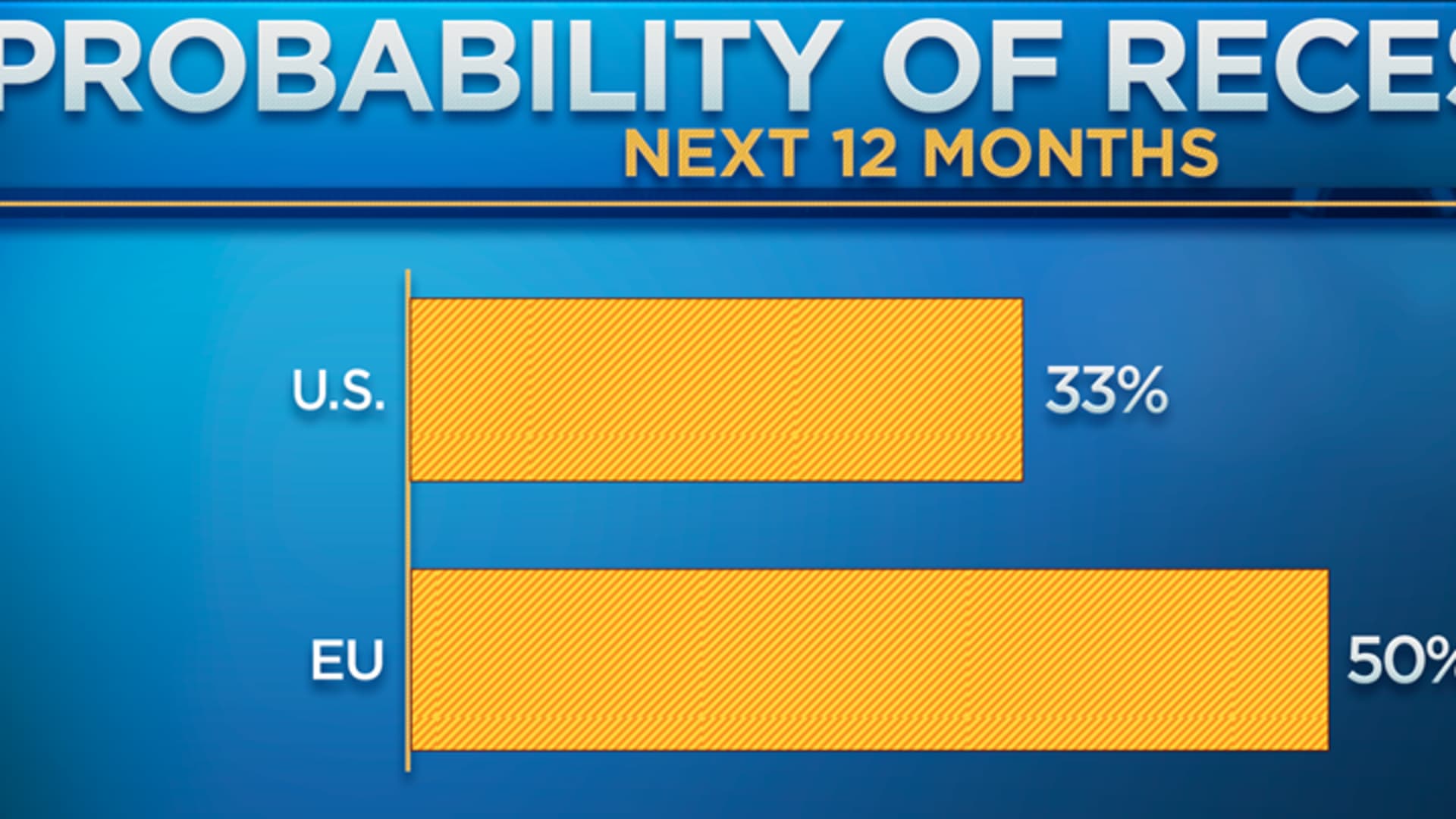
"The tax impact of higher commodities prices is likely to slow the pace of hiking more than the inflationary impact is to accelerate it," wrote Guy LeBas, chief fixed income strategist at Janney Montgomery Scott.
But Rob Morgan, senior vice president at Mosaic, wrote: "I expect six quarter-point rate hikes from the Fed in 2022. If CPI reaches 9% in the March or April report, the Fed might be pressured into a 50-basis point hike in May."
The 33 respondents, who include fund managers, strategists and economists, forecast the Fed will raise rates an average of 4.7 times this year, bringing the funds rate to end the year at 1.4% and to 2% by the end of 2023. Nearly half of the respondents see the central bank hiking five to seven times this year.
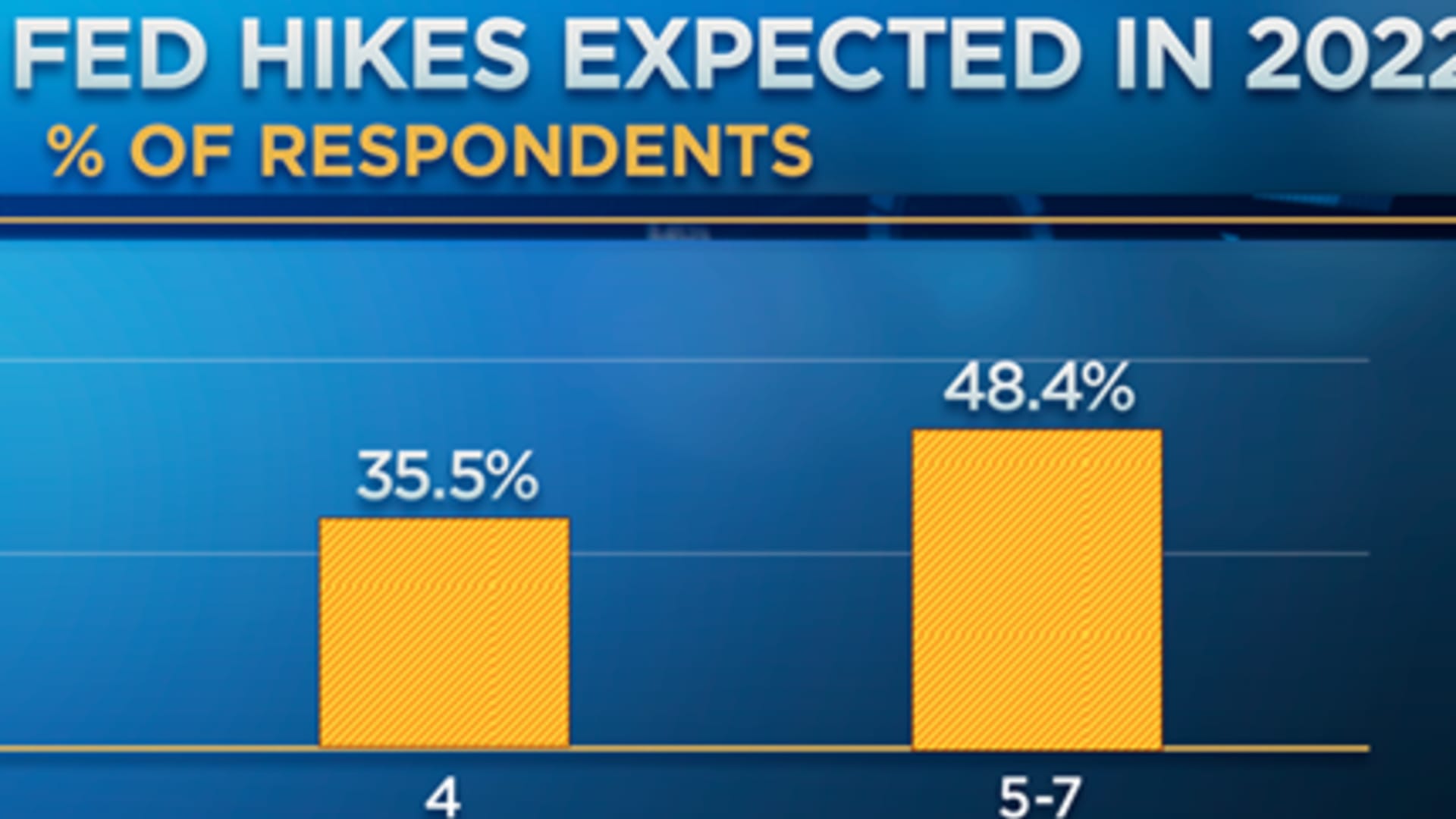
The rate hike cycle is seen ending at a peak funds rate of 2.4%, about the Fed's neutral rate. But half of all respondents believe the central bank may ultimately have to raise rates above neutral to get control of inflation.
Money Report
Propelling the rate increases are forecasts for the consumer price index to peak at 8.5% in March, but gradually decline to finish the year at a still high 5.2%. That's nearly a full percentage point higher than the February survey. The CPI in 2023 is forecast to rise a tamer 3.3%, a rate still above the Fed's target.
"We might be on the cusp of the Fed raising rates at the same time there is a minus sign in front of GDP," wrote Peter Boockvar, chief investment officer of Bleakley Advisory Group. "What an awful position to be in, but until inflation falls sharply, they have no choice but to carry on."
Recession not base case
While a recession is seen as a greater possibility than in February, it's not the base case for most respondents. The average GDP forecast for this year slipped by 0.8 percentage point but remains at a slightly above-trend 2.8%. The GDP forecast for 2023 dropped by about a half a point from the last survey to 2.4%.
Inflation forecasts had already been high for this year, but Russia's invasion of Ukraine has aggravated the situation with nearly 90% saying they boosted their 2022 inflation outlook because of the war. They added an average 0.8 percentage point to their inflation forecast. Sixty percent of respondents said they shaved the GDP forecasts due to the conflict, with an average of a half a point.
While inflation forecasts rose and growth outlooks declined, the outlook for stocks is relatively bullish. Respondents lowered their outlook for equities, but only 53% now say stocks are overvalued relative to the outlook for earnings and growth. That's down from 88% a year ago, and the least bearish respondents have been since the Covid pandemic began.
Meanwhile, the CNBC Risk/Reward ratio (measuring the chance of a 10% correction verus the chance of a 10% increase in the next six months) improved to -9 from -14, meaning a negative correction is judged less likely. The outlook for the S&P 500 dropped to 4,431 this year, suggesting stocks could have 6% upside from the current level.


